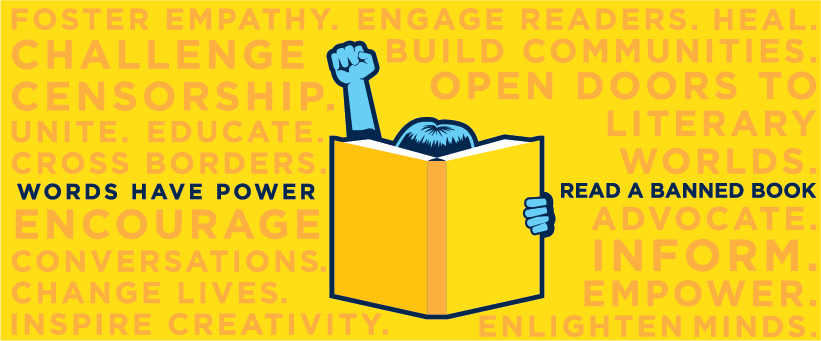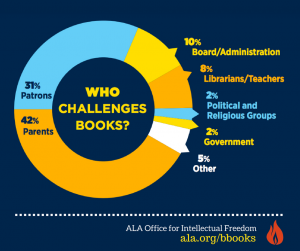American Library Association: Banned Books Week 2017: Sept. 24 – Sept. 30
Banned Books Week is an annual event celebrating the freedom to read. Typically held during the last week of September, it highlights the value of free and open access to information. Banned Books Week brings together the entire book community — librarians, booksellers, publishers, journalists, teachers, and readers — in shared support of the freedom to seek and express ideas, even those some consider unorthodox or unpopular.
Find free Banned Books Week program ideas and resources from ALA: bookmarks, posters, social media images, display ideas, and virtual Read-Out videos! Check out ALA’s Top 10 Most Challenged Books of 2016 infographic!
To continue to raise awareness about the harms of censorship and the freedom to read, the ALA Office for Intellectual Freedom (OIF) publishes an annual list of the Top Ten Most Challenged Books, using information from public challenges reported in the media, as well as censorship reports submitted to the office through its challenge reporting form.
Find out which books made the Top Ten Most Challenged Books of 2016 and explore Top Ten talking points, infographics and social media art on the Top Ten resource page. View the 2017 State of America’s Library Report for more information on censorship, library trends and research.
A challenge is an attempt to remove or restrict materials, based upon the objections of a person or group. A banning is the removal of those materials. Challenges do not simply involve a person expressing a point of view; rather, they are an attempt to remove material from the curriculum or library, thereby restricting the access of others. As such, they are a threat to freedom of speech and choice.
The books featured during Banned Books Week and National Library Week have all been targeted with removal or restrictions in libraries and schools. But out of the hundreds of challenges ALA records every year, only about 10% of books are removed from the location where the challenge took place, thanks to local literary champions such as librarians, students, and patrons who stand up and speak out for the freedom to read.


